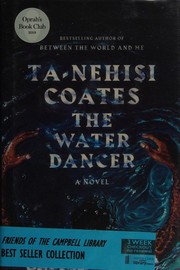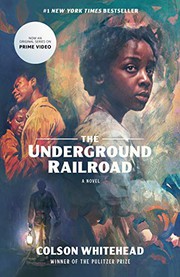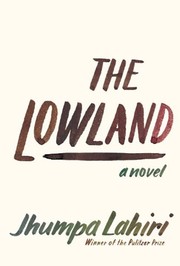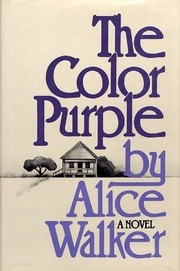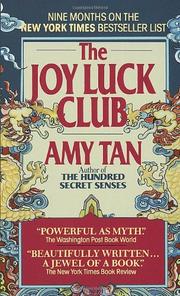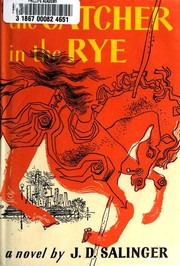Are you looking for a book on generational trauma that will deeply resonate with you? Delve into the complexities of intergenerational trauma with these 20 powerful reads. Explore the profound impact of historical events on individuals and families, and the resilience that can emerge from such experiences. These generational trauma books offer insight, empathy, and a deeper understanding of the lasting effects of trauma. Whether you’re a psychology enthusiast or simply interested in human stories, these books are sure to captivate and enlighten you.
Contents
- 1 20 Best Books About Generational Trauma
- 2 The Water Dancer
- 3 Homegoing
- 4 Pachinko
- 5 The Round House
- 6 The Underground Railroad
- 7 The Book of Unknown Americans
- 8 The Lowland
- 9 The Namesake
- 10 The Kite Runner
- 11 The Glass Castle
- 12 The Color Purple
- 13 Beloved
- 14 The Joy Luck Club
- 15 The God of Small Things
- 16 The House on Mango Street
- 17 The Bluest Eye
- 18 The Catcher in the Rye
- 19 To Kill a Mockingbird
- 20 One Hundred Years of Solitude
- 21 The Grapes of Wrath
- 22 Conclusion
- 23
- 24 Unveiling the Best Humor Books in this 2024 Update
- 25 Discover the Best Career Development Books in the 2024 Updated Edition
- 26 The 20 Income Inequality Books: Best 2024 Update and Review
20 Best Books About Generational Trauma
The Water Dancer
by Ta-Nehisi Coates
The Water Dancer is a poignant novel by Ta-Nehisi Coates that delves into the complex and deeply affecting theme of generational trauma. Set against the backdrop of the antebellum South, the story follows the journey of Hiram Walker, a young man born into bondage with a mysterious power. As he grapples with the legacy of slavery and the invisible chains that bind his family, Hiram embarks on a quest for freedom and self-discovery. Coates’ lyrical prose and vivid storytelling skillfully weave together history, magical realism, and the enduring resilience of the human spirit. The Water Dancer is a profound exploration of the enduring impact of systemic oppression and the resilience of the human spirit in the face of adversity, making it a must-read for anyone interested in a powerful, thought-provoking book on generational trauma.
Homegoing
by Yaa Gyasi
Homegoing by Yaa Gyasi is a powerful and compelling novel that delves into the effects of generational trauma on a family lineage. Spanning over three centuries, the book follows the descendants of two half-sisters in Ghana, exploring the impact of slavery, colonization, and the African diaspora on their lives. Gyasi skillfully weaves together the stories of each generation, providing a vivid and emotional portrayal of the lasting consequences of historical injustices. Through vivid storytelling and rich character development, the novel offers a profound exploration of the lasting effects of intergenerational suffering and resilience. Homegoing is a poignant and thought-provoking read that sheds light on the enduring legacy of trauma and the human capacity for strength and hope.
Pachinko
by Min Jin Lee
Pachinko by Min Jin Lee is a captivating book about generational trauma that follows the lives of a Korean family living in Japan. The novel spans several decades and explores the impact of historical events on the characters, such as the Japanese occupation of Korea and the discrimination faced by Koreans in Japan. Through the lives of the family members, the reader witnesses the enduring effects of displacement, prejudice, and sacrifice. The novel delves into themes of identity, belonging, and resilience, making it a poignant and powerful exploration of generational trauma. With rich storytelling and compelling characters, Pachinko is a masterful portrayal of the human experience and the ways in which the past shapes the present.
The Round House
by Louise Erdrich
The Round House by Louise Erdrich is a powerful and gripping novel that delves into the complexities of justice, family, and the lasting impact of trauma. Set on a Native American reservation in North Dakota, the story follows a young boy, Joe, as he seeks to unravel the mystery behind his mother’s brutal attack. As he delves deeper into the investigation, he uncovers the harsh realities of life on the reservation and confronts the long-standing effects of historical trauma.
This compelling narrative explores themes of resilience, identity, and the intergenerational repercussions of violence, making it a poignant and thought-provoking read. The Round House is a profound exploration of the enduring effects of historical trauma and a testament to the strength and resilience of the human spirit.
The Underground Railroad
by Colson Whitehead
The Underground Railroad by Colson Whitehead is a gripping and haunting novel that explores the pervasive impact of historical oppression on future generations. Set in the antebellum South, the story follows Cora, a young slave who embarks on a harrowing journey to freedom via the clandestine network of the Underground Railroad. Whitehead’s vivid prose and unflinching portrayal of the brutal realities of slavery and its aftermath make this a powerful and essential read. The book delves into the enduring legacy of intergenerational trauma, shedding light on the deep-rooted scars left by systemic oppression. It is a thought-provoking and poignant examination of the enduring impact of historical injustices, making it a must-read for anyone seeking to understand the enduring effects of generational trauma.
The Book of Unknown Americans
by Cristina Henríquez
The Book of Unknown Americans by Cristina Henríquez is a powerful and poignant novel that delves into the complex experiences of Latin American immigrants living in the United States. Through the intertwined stories of various immigrant families, Henríquez explores the themes of displacement, identity, and the pursuit of the American dream. The novel paints a vivid and heartfelt portrait of the challenges and triumphs faced by these individuals as they navigate a new culture while holding on to their roots. It is a deeply moving and timely exploration of the immigrant experience, and the book sheds light on the generational trauma that can be passed down through families. Henríquez’s beautifully crafted narrative and empathetic characters make this a must-read for anyone interested in the human stories behind immigration.
The Lowland
by Jhumpa Lahiri
The Lowland by Jhumpa Lahiri is a poignant and evocative novel that delves into the complexities of family, identity, and the lasting impact of historical events. Set in Calcutta and Rhode Island, this multigenerational saga follows the lives of two brothers, Subhash and Udayan, whose paths diverge in the wake of political unrest in 1960s India. The novel explores themes of loss, regret, and the enduring bonds of family, as well as the ways in which historical events can shape individual destinies. Lahiri’s exquisite prose and keen insight into the human experience make The Lowland a compelling read for anyone interested in exploring the effects of intergenerational trauma and the ways in which it reverberates through familial relationships.
The Namesake
by Jhumpa Lahiri
The Namesake by Jhumpa Lahiri is a poignant exploration of the immigrant experience, family dynamics, and the struggle to forge one’s identity. This novel follows the life of Gogol Ganguli, a first-generation Indian-American, as he navigates the complexities of cultural assimilation and the weight of familial expectations. Lahiri skillfully delves into the intricacies of generational trauma, portraying the enduring impact of history and tradition on individuals and their families. Through vivid storytelling and rich character development, The Namesake offers a profound examination of the immigrant experience and the enduring legacy of the past. This generational trauma book illustrates the challenges and triumphs of those caught between two worlds, grappling with the burdens and blessings of their heritage.
The Kite Runner
by Khaled Hosseini
The Kite Runner by Khaled Hosseini is a powerful and moving novel that delves into the complexities of guilt, redemption, and the impact of the past on the present. Set in Afghanistan, the story follows the lives of two young boys, Amir and Hassan, whose friendship is tested by betrayal and the tumultuous events of their country’s history. The novel explores themes of loyalty, forgiveness, and the devastating effects of secrets and lies. Through the characters’ experiences, the book delves into the lasting effects of familial and societal upheaval, making it a poignant exploration of the repercussions of intergenerational trauma. Ultimately, The Kite Runner is a stirring and thought-provoking read that offers a window into the human experience and the enduring effects of the past on individuals and their relationships.
The Glass Castle
by Jeannette Walls
The Glass Castle by Jeannette Walls is a captivating memoir that delves into the complexities of family dynamics and resilience in the face of adversity. Set against the backdrop of a dysfunctional and impoverished upbringing, Walls invites readers into her world, where she grapples with the effects of generational trauma and strives to overcome the challenges that come with it. Through her poignant storytelling, she explores themes of resilience, forgiveness, and the enduring bonds of family. The memoir is a powerful testament to the human spirit and the enduring impact of childhood experiences. The Glass Castle is a must-read for anyone interested in a raw and honest portrayal of overcoming generational trauma.
The Color Purple
by Alice Walker
The Color Purple, written by Alice Walker, is a powerful and moving novel that delves into the complex themes of intergenerational suffering. Set in the American South in the early 20th century, the book follows the life of Celie, a young African-American woman who endures immense hardship and abuse. Through a series of letters, Celie shares her experiences of oppression, discrimination, and violence, offering a raw and unflinching portrayal of the generational trauma passed down through her family. As Celie navigates her journey towards self-discovery and empowerment, the novel explores the resilience of the human spirit in the face of adversity. With its poignant narrative and profound exploration of the effects of intergenerational suffering, The Color Purple is a compelling and thought-provoking read that sheds light on the enduring impact of trauma.
Beloved
by Toni Morrison
Beloved by Toni Morrison is a haunting and powerful exploration of the enduring impact of slavery on individuals and families. Set in post-Civil War Ohio, the novel follows Sethe, an escaped slave, and her daughter Denver as they try to rebuild their lives haunted by the ghost of Sethe’s deceased daughter, Beloved. The story delves into the deep scars of slavery, exploring themes of trauma, memory, and the struggle for freedom. Morrison’s lyrical prose and masterful storytelling make this a captivating and thought-provoking read. Beloved is a profound book about generational trauma, and it shines a light on the painful legacy of slavery that continues to reverberate through the generations. It is a must-read for those seeking a deeper understanding of the lasting impact of historical injustices.
The Joy Luck Club
by Amy Tan
The Joy Luck Club is a captivating book about generational trauma, written by Amy Tan. This powerful novel delves into the lives of four Chinese immigrant families and their American-born daughters. Through a series of interconnected stories, the book explores the complex relationships between mothers and daughters, and the enduring impact of cultural and intergenerational experiences. The narrative weaves together themes of identity, tradition, and the struggle for understanding across different generations. Amy Tan’s poignant storytelling and richly developed characters make this a compelling and emotional read. The Joy Luck Club is a beautifully crafted exploration of the lasting effects of familial and cultural history, making it a must-read for anyone interested in the complexities of family dynamics and the resilience of the human spirit.
The God of Small Things
by Arundhati Roy
The God of Small Things, written by Arundhati Roy, is a stunning and heartbreaking novel that delves into the complexities of family, love, and societal expectations. Set in Kerala, India, the story follows the lives of twins Estha and Rahel, as they navigate the rigid social hierarchy, forbidden love, and the weight of family secrets. The book explores the theme of intergenerational trauma, depicting how the decisions and actions of previous generations continue to impact the lives of the characters. Roy’s lyrical prose and vivid imagery draw readers into a world of forbidden desires and societal constraints, making it a poignant and thought-provoking read. The God of Small Things is an evocative and powerful exploration of the lasting effects of family history and the struggle to break free from the chains of the past.
The House on Mango Street
by Sandra Cisneros
The House on Mango Street by Sandra Cisneros is a poignant coming-of-age novel that explores the experiences of a young Latina girl growing up in Chicago. Through a series of interconnected vignettes, the protagonist, Esperanza, navigates the challenges of adolescence, identity, and belonging in a working-class neighborhood. The novel delves into themes of family, culture, and the impact of societal expectations on women. Cisneros beautifully captures the complexities of Esperanza’s world, offering a powerful portrayal of the struggles and triumphs of a young girl searching for her place in the world. The House on Mango Street is a captivating and evocative read that delves into the depths of generational trauma, offering a unique perspective on the resilience of the human spirit.
The Bluest Eye
by Toni Morrison
The Bluest Eye by Toni Morrison is a powerful and haunting book about the devastating effects of internalized racism and the cycle of generational trauma. Set in 1940s Ohio, the story follows Pecola Breedlove, a young black girl who longs for blue eyes and blonde hair, believing that this will bring her the love and acceptance she craves in a world that devalues her for her dark skin. Morrison’s lyrical prose and unflinching exploration of the impact of societal beauty standards on a young girl’s self-worth make this a deeply affecting and thought-provoking read. The Bluest Eye is a searing examination of the ways in which trauma can be passed down through generations, and a testament to the resilience and strength of those who endure it.
The Catcher in the Rye
by J.D. Salinger
The Catcher in the Rye by J.D. Salinger is a classic coming-of-age novel that delves into the themes of alienation, identity, and rebellion. The story follows Holden Caulfield, a disenchanted teenager who struggles with the phoniness of the adult world. Throughout the novel, Holden grapples with the loss of innocence and the complexities of growing up, making it a poignant exploration of the challenges faced by young people.
Salinger’s masterful storytelling and Holden’s distinctive voice make this a compelling read for anyone interested in the complexities of adolescence and the impact of intergenerational trauma. The novel’s exploration of mental health, identity, and the struggle to connect with others resonates with readers of all ages, making it a timeless and thought-provoking book about generational trauma.
To Kill a Mockingbird
by Harper Lee
To Kill a Mockingbird, written by Harper Lee, is a timeless classic that delves into the complex issues of racial injustice and moral growth in the American South. Set in the 1930s, the novel follows the story of Scout Finch, a young girl living in a small town, and her father, Atticus Finch, a lawyer defending a black man accused of raping a white woman. Through Scout’s innocent yet perceptive eyes, the readers are confronted with the harsh realities of prejudice, inequality, and the impact of generational trauma on society. The novel explores the deep-seated roots of societal prejudice and the importance of empathy and understanding in overcoming it. To Kill a Mockingbird is a profound and thought-provoking book about generational trauma that continues to resonate with readers of all ages.
One Hundred Years of Solitude
by Gabriel García Márquez
One Hundred Years of Solitude is a mesmerizing and captivating book about generational trauma written by Gabriel García Márquez. This literary masterpiece weaves a captivating tale of the Buendía family, chronicling their triumphs, failures, and enduring struggles through the passage of time. Set in the fictional town of Macondo, the novel skillfully delves into the complexities of family dynamics, love, and the cyclical nature of history. García Márquez’s magical realism and vivid storytelling create a rich tapestry of events that span over a century, leaving readers spellbound by the Buendía family’s enthralling journey. This generational trauma book is a timeless exploration of the human experience, filled with enchanting prose and profound revelations that will stay with readers long after they turn the final page.
The Grapes of Wrath
by John Steinbeck
The Grapes of Wrath is a classic novel by John Steinbeck that delves into the struggles of a family during the Great Depression. This book on generational trauma follows the Joad family as they are forced off their Oklahoma farm and journey to California in search of a better life. Along the way, they face poverty, discrimination, and injustice, highlighting the harsh realities of the era. Steinbeck’s powerful storytelling captures the resilience and determination of the Joads, shedding light on the generational trauma caused by economic hardship and social upheaval. The novel’s themes of resilience, hope, and the human spirit resonate with readers, making it a timeless exploration of the challenges faced by families during difficult times.
Conclusion
These 20 books about Generational Trauma offer a profound exploration of how the past can continue to shape the present. Through powerful storytelling and insightful analysis, these books provide a deep understanding of the lasting impact of trauma on individuals, families, and communities. Whether you’re looking to delve into the psychological effects of intergenerational trauma or seeking to gain a greater understanding of historical legacies, these books offer invaluable perspectives and narratives that are essential for anyone interested in the topic.
Which Generational Trauma book is best?
The best book on Generational Trauma can vary with personal preference, but three widely recommended titles are:
Each offers valuable insights and could be a great starting point.
What are the best books to learn about Generational Trauma?
For those looking to learn about Generational Trauma, there is a wealth of literature that can provide a comprehensive understanding of the subject. Some of the most highly recommended books include:
- The Water Dancer by Ta-Nehisi Coates,
- Homegoing by Yaa Gyasi,
- Pachinko by Min Jin Lee,
- The Round House by Louise Erdrich,
- The Underground Railroad by Colson Whitehead,
- The Book of Unknown Americans by Cristina Henríquez,
- The Lowland by Jhumpa Lahiri,
- The Namesake by Jhumpa Lahiri,
- The Kite Runner by Khaled Hosseini,
- The Glass Castle by Jeannette Walls
These books offer a range of perspectives on Generational Trauma, covering various aspects and approaches to the subject.
What are the best books on Generational Trauma?
The best books on Generational Trauma include:
- The Water Dancer by Ta-Nehisi Coates,
- Homegoing by Yaa Gyasi,
- The Color Purple by Alice Walker,
- Beloved by Toni Morrison,
- The Namesake by Jhumpa Lahiri,
- The Book of Unknown Americans by Cristina Henríquez.
Each offers unique insights into the subject. While these books on the topic of Generational Trauma are highly regarded, it’s important to note that any list of ‘best’ books is subjective and reflects a range of opinions.
What are the best Generational Trauma books of all time?
Choosing the best Generational Trauma books of all time can vary depending on who you ask, but seven titles that are often celebrated include
- The Water Dancer by Ta-Nehisi Coates,
- Homegoing by Yaa Gyasi,
- The Underground Railroad by Colson Whitehead,
- The Namesake by Jhumpa Lahiri,
- The Glass Castle by Jeannette Walls,
- Beloved by Toni Morrison,
- and The Color Purple by Alice Walker.
Each of these books has made a significant impact in the field of Generational Trauma and continues to be influential today.

